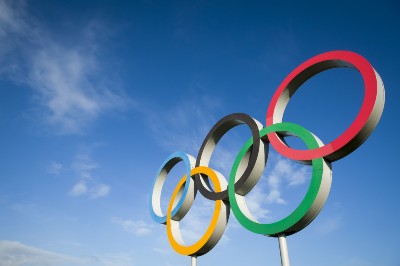
As the first Games to take place without spectators due to the coronavirus pandemic, many were worried that the delayed 2020 Tokyo Olympics was going to be something of a damp squib. But by the end of the summer, it had earned a different attitude from sceptics owing to its passionate performances and welcome focus on social and environmental issues. So, what impression has this unique Olympics made on the world of global sport going forward?
New incentive for increased sports funding
The Games featured a number of heart-warming scenes, including Bermuda becoming the smallest country to win a Gold and four other nations claiming their first ever medals. the Olympics breeding so much patriotic pride, other nations are now looking to prioritize funding. They can see the value in Olympic success, even if their athletes don’t win medals — the mere honor of having competing Olympians is a source of pride for citizens.
Dominica, for example, has announced a National Sports Council to oversee a new fund for sports clubs and athletes. The news comes as two athletes from Dominica, Thea Lafond and Dennick Luke, participated at the Tokyo 2020 Olympics. While Dominica did not medal at the Games, 800m runner, Lafond, set a new national record and placed 12th.The National Sports Trust Fund is supporting more athletic initiatives using revenues from the country’s Citizenship by Investment (CBI) program.
All in all, the success of small nations competing in the Tokyo Olympics will encourage similarly-sized countries to take part in future, which can only improve the Games going forward. After all, who doesn’t love watching a minnow beat a shark?
Heightened awareness of mental health
The Tokyo Olympics put a welcome spotlight on mental health. First, US gymnastics star Simone Biles pulled out of competition after struggling with mental health issues, before Adam Peaty — who won two golds at the Games — announced he was taking a month off to mentally refresh. Seven-time Olympic medalist and 24-year old Biles withdrew after experiencing “the twisties”, a mental block that prevents you from carrying out movements usually locked into muscle memory. To give an example for non-gymnasts, it would be kind of like your muscles forgetting how to walk down stairs. After moving away from the competition, Biles said that maintaining her mental and physical health was above all medals that she could ever win, a refreshing outlook from someone with so much influence.
The stigma of perceived weakness relating to mental health concerns has long kept the topic in the shadows. However, having public figures talk openly about prioritizing their mental health is a step in the right direction, and the overriding reception for such athletes has been positive. The executive director of UNICEF thanked Biles “for being a role model and showing the world it’s OK to prioritize your mental health”.
Going forward, these incidents and the reaction that followed should hopefully provide an incentive for other professional athletes to reveal their own truths. More people coming forward means more role models like Biles and hopefully the strange stigma around mental health being beaten sooner rather than later. It just needs to maintain its momentum.
Sustainable-centered approach to running a large-scale event
The Tokyo 2020 Olympics has been claimed to be the greenest Games ever, with eco-friendliness put to the fore like never before. At the opening ceremony, the torchbearer wore a uniform made from discarded Coca-Cola bottles, while the hydrogen-fueled torch he held was repurposed from disaster relief shelter aluminium. Throughout the competition, athletes slept on recycled cardboard beds and stood on podiums 3D-printed from household plastic waste. Even the medals they won were made from old smartphones. All of these small changes show how easy it can be to make an effort, something other global events can implement moving forward. Moreover, the Olympic Village exhibited a sustainable approach to urban development, including the introduction of hydrogen-generated electricity. After the Games finished, the village became Japan’s first hydrogen-powered town.
Despite all of this, Tokyo’s show of exhibiting sustainability has been deemed “superficial” by some. Masako Konishi, climate and energy project leader at the World Wildlife Fund Japan, accused Tokyo of greenwashing. He said: “Using recycled plastic for building podiums is good as a showcase but it doesn’t leave any legacy to Japanese society as they didn’t ban the use of these plastics.” It’s an interesting debate. Whether the memorable and quirky use of sustainable podiums, recycled-phone medals and cardboard beds just distracted from any rooted ecological concerns in the world, remains to be seen. After all, Japan is still the world’s fifth largest emitter of carbon dioxide. What is certain, however, is that a sustainable approach to running a global event could inspire other countries to follow suit in the future, even if one of the key motivations is soft power.
Story by Syna Smith










